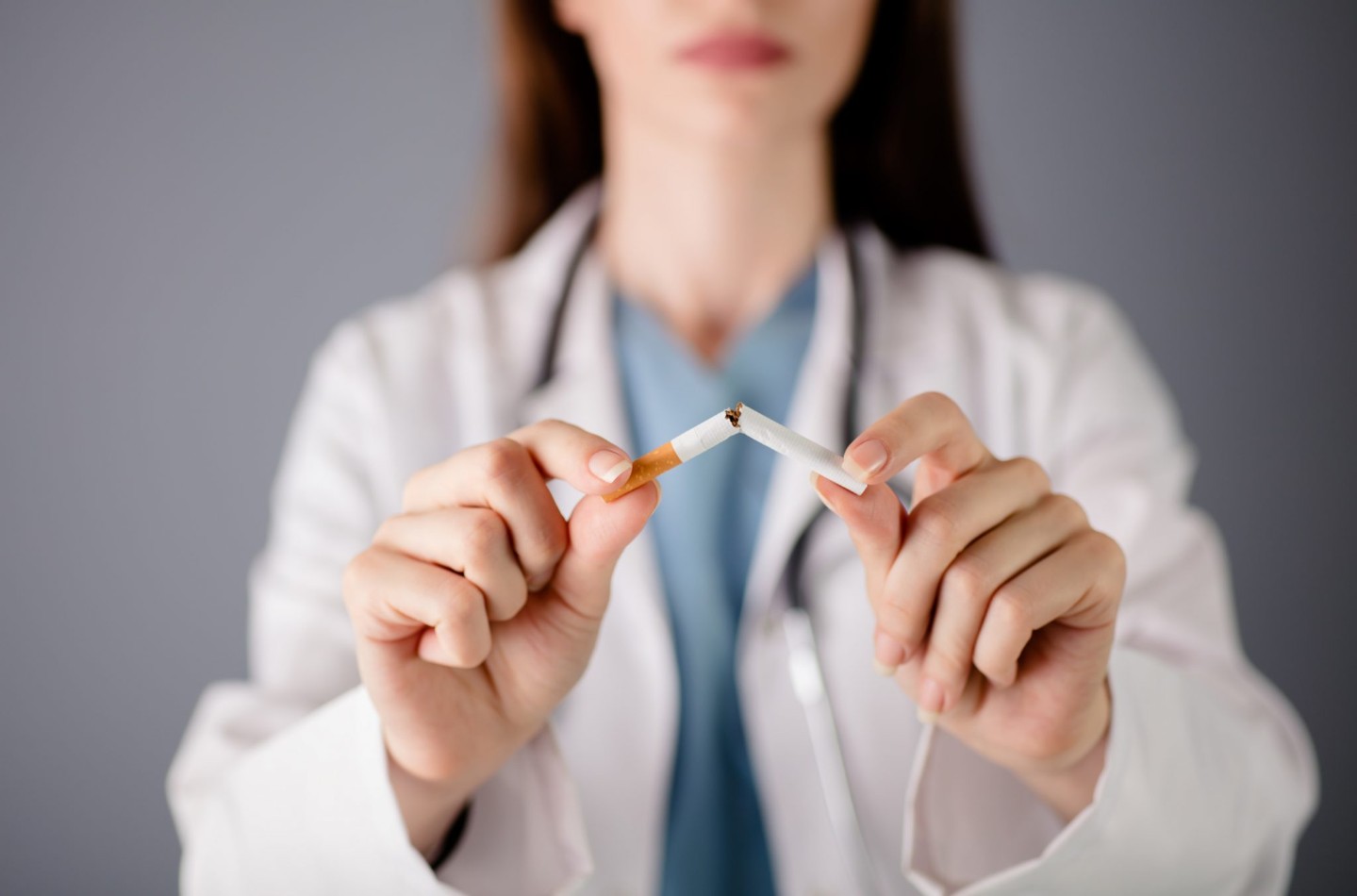The Colonoscopy Prep: Fun? No. Easier? Yes!
MAR 02, 2026Modern colonoscopy prep is easier. Discover split-dose and small-volume options, plus tips for a smoother experience, and why this life-saving screening is essential.
Read More
Why is it so hard for many people to quit smoking? Most smokers know that they’re addicted, but they may not realize that there are several aspects to their addiction. We call this the “three-link chain of addiction.” Smokers have a better chance of quitting and staying quit if they address all three parts of the chain.
Smokers become physically hooked on the chemical nicotine in cigarettes. Nicotine is extremely addictive and actually produces changes in a smoker’s brain. As a result, having a cigarette decreases a smoker’s anxiety level and can help improve mood. Nicotine also stimulates the brain to release chemicals that make the smoker feel more awake and alert.
Smokers often have a cigarette at the same time every day. This may be during the drive to work, while talking on the telephone or after finishing a meal. Smoking becomes such an automatic behavior that some smokers light up without even thinking about it. Smokers also link emotions like pleasure or relief with having a cigarette.
Smoking plays a huge role in our society. Teenagers often begin smoking to fit in with a group. Asking, “Got a light?” is a common way to break the ice when meeting someone new. Social groups even form when the same employees regularly go outside to smoke during breaks.
Every smoker has a reason to smoke. You know it harms your health, but you do it anyway. Why? Maybe smoking helps you deal with stress. Maybe you like to hold a cigarette. Maybe you like the little rush of the nicotine entering your system. The more you know about why you smoke, the easier it will be to quit. Take a few minutes and think about your life and your behaviors. Then make a list.
Answer the below questions to yourself as Yes or No:
If you answered YES to 4 or more questions, you are ready to quit smoking!
If you answered YES to less than 4 questions, please talk to your primary care provider.
When someone stops smoking, lots will happen in various time periods.
Within 10 years, your risk of lung cancer is about half that of a smoker, and your risk decreases for cancer of the bladder, cervix, kidney, and pancreas. Your risk of having ulcers is also reduced.
Learn more about the CHI Health tobacco cessation program.

Modern colonoscopy prep is easier. Discover split-dose and small-volume options, plus tips for a smoother experience, and why this life-saving screening is essential.
Read More
Good nutrition is about building a foundation for a vibrant, energetic, and disease-resistant life for you and your loved ones.
Read More
Raynaud's phenomenon is a rare disorder that affects the blood vessels, most commonly in the fingers and toes, but sometimes also in the nose, ears, or lips.
Read MoreWhen you need local health information from a trusted source, turn to the CHI Health Better You eNewsletter.